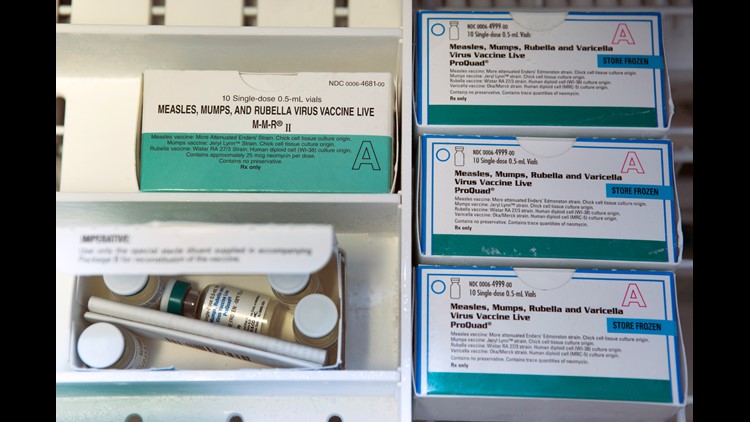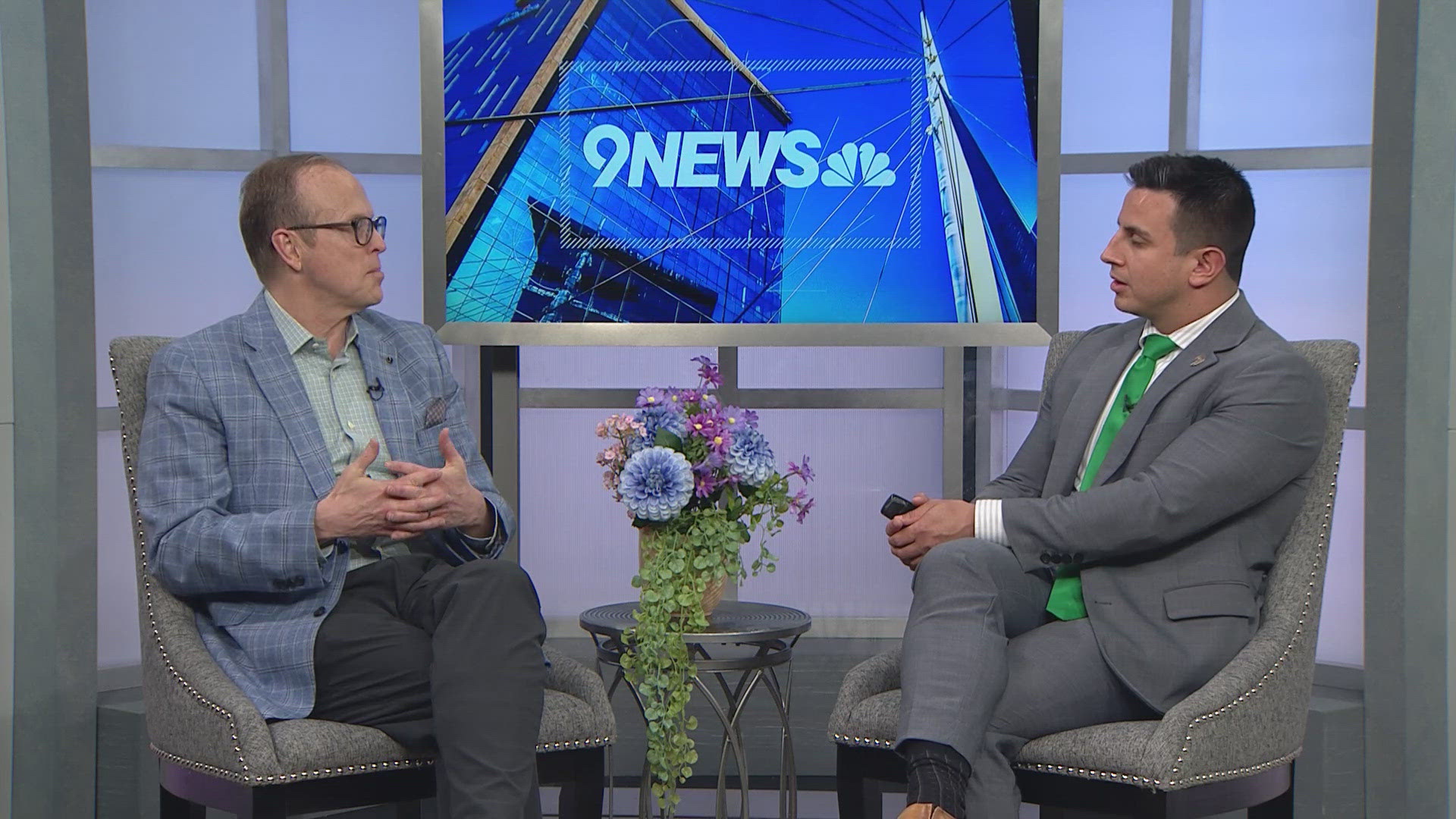KUSA — A little less than 1% of children in the U.S. between 19 and 35 months are not vaccinated. Ten to 20% of parents have refused or delayed giving their child a vaccine, and even more are worried about vaccines and their side effects.
A new study by the Kaiser Permanente Colorado Institute for Health Research looked at how social media and the internet influence pregnant women's decisions to vaccinate their children.
Approximately 1,100 pregnant women in their third trimester were included in the study. The women were assigned to one of 3 groups: (1) usual care with their doctors; (2) usual care with access to a website with vaccine information and (3) usual care, vaccine website and social media (blogs, chat room, discussion forum, "Ask an Expert a Question," and a monthly newsletter).
Pregnant women were interviewed when they first enrolled in the study, when their infant was 3 to 5 months old, and then again at age 12 to 15 months.
The researchers wanted to see if the addition of access to accurate information through a website, as well as social media, made a difference in the women's attitudes and beliefs toward vaccinating their children.
Overall, women who were hesitant about vaccines, both in the website and the website plus social media group, had a decrease in their concerns about vaccines and saw the benefits of vaccines at their follow-up surveys. Women who were not hesitant about vaccinations did not see a significant change in their attitudes or behavior in any of the intervention groups. The group with social media also was more likely to vaccinate their children on time as compared to the group who just had the usual visits with their healthcare providers.
How do vaccines work?
Vaccines save lives. Vaccines are made from a killed or weakened virus or bacteria that, when given to your child, helps their body be exposed to the virus or bacteria first and then lets the child's body create antibodies. Antibodies are the body's way of fighting infection but can take days or weeks to build up. Often, multiple vaccinations are needed to make sure that the child's immune response is ready to go if they are exposed naturally to the virus or bacteria. so if they are exposed to the virus or bacteria body's response to fight this disease if he/she is exposed to it. The vaccine schedule was created to help decrease your child's potential exposure to 14 different diseases that are preventable by their 2nd birthday. If your child gets one of these diseases, they can have serious medical issues, and they can be deadly in some cases.
Vaccine frequently asked questions
Why does my child need so many vaccines at 12 months?
The vaccination schedule was created by the Centers for Disease Control and Prevention. There is no data to say that it is harmful to a child to receive multiple vaccines at one time. The amount of exposure to the killed/weakened bacteria and viruses in a vaccine is very small in comparison to what children are normally exposed to daily.
What is herd immunity and why is it important?
There are children who are not able to get vaccines because they are too young or their immune system is too weak. By vaccinating your child, you are helping to decrease the spread of diseases and protecting those children who cannot get vaccines themselves.
What diseases are "coming back" because people are not vaccinating or delaying vaccinations for their children?
We are starting to see a rise in measles and whooping cough. These diseases can be deadly for young children especially since most children cannot get their first measles, mumps, rubella vaccine until 12 months. So, it is very important to vaccinate your children to decrease the spread of these diseases.
Can I delay or do an alternative schedule?
Delaying vaccines just makes the child more open to getting an infection from one of the vaccine-preventable diseases. There is no data to say that it is safer or better for the child to delay or space out the vaccine schedule.
What are the side effects and bad things that can happen from vaccines?
Vaccine side effects are very rare. And again, the risks to not only yourself but to other children is very high when a child is not vaccinated. There is no data showing a link between vaccines causing autism, asthma or other issues. The benefits of vaccinations far outweigh the risks.
There has been a lot of misinformation spread about vaccines, causing parents to delay or not give their children vaccines.
As a Mother and Doctor, I know just how important vaccines are. My children are at the pediatrician's office on the first day that they can get their vaccines. More information and resources are available for parents who have questions about vaccines and the immunization schedule.



